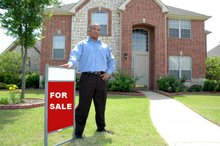6 Basics To Consider Before Buying A Home
If you are in the market to buy a home there are several factors you may want to consider before deciding which house to buy. Here are 6 points to get you started in preparing your list of wants and needs:
1. Consider your financial position. How much money can you realistically afford to borrow? What is your comfort zone for borrowings? Decide on a price range where you can comfortably meet your mortgage payments. Allow for other expenses involved with moving into a new home.
2. Consider access/closeness to your place of work. Do you and/or your wife/husband and family need to use public transport/freeways to get to work/school? Be aware of the ease of access to other amenities like recreational facilities, libraries, shopping, health services, vets etc. How close do you need to be to friends and relatives?
3. Be realistic about how much time and money you will commit to home and garden maintenance. Do you want to spend your weekends mowing lawns and gardening? An immaculately presented garden or freshly painted house will eventually need work.
4. Consider how long you intend to own the home. If you have a young family or teenagers think about how their needs will alter over coming years. Young children will eventually want their own bedroom. Teenagers will eventually fly the nest but in the meantime might put added stress on the bathroom arrangements.
5. If you are retired consider the types of hobbies and interests you are developing that may require space eg. a model train layout or the need for a hobbies/computer room, storage for a boat, or perhaps space to create a garden.
6. Be open-minded to thinking outside the square. Here is an example of what I mean.
A newly retired couple I know moved from a large family home into a retirement village. They are only in their early sixties so I asked them why they made that decision. They told me they wanted a low-maintence home, they wanted security and they wanted money to travel and visit family overseas. Living in a retirement village meant they spent around six months a year at the village and three months with each daughter. Although they had to pay a small weekly service charge at the retirement village it was much cheaper than paying hotel bills and they had their garden done while they were away and had the security of knowing their furniture, car etc were safe and secure while they were away overseas.
Even if you are newly retired and don't want to move into a retirement village perhaps you might consider buying a smaller home and a holiday home (or just investing the saved money) rather than investing in one bigger home. Think outside the square.
Click here for more real estate tips to help you buy and sell properties.


















No comments:
Post a Comment